Trump is not merely neglecting the liberal world order, writes Bob Kagan; he is milking it for narrow gain, rapidly destroying the trust and sense of common purpose that have held it together and prevented international chaos for seven decades. This piece originally appeared in the Washington Post.
Since the end of the Cold War, it has widely been assumed that U.S. foreign policy would follow one of two courses: Either the United States would continue as primary defender of the international order it created after World War II, or it would pull back from overseas commitments, shed global responsibilities, turn inward and begin transitioning to a post- American world. The second approach was where U.S. foreign policy seemed headed under President Barack Obama, and most saw the election of Donald Trump as another step toward withdrawal.
It turns out there was a third option: the United States as rogue superpower, neither isolationist nor internationalist, neither withdrawing nor in decline, but active, powerful and entirely out for itself. In recent months, on trade, Iran, NATO defense spending and perhaps even North Korea, President Trump has shown that a president willing to throw off the moral, ideological and strategic constraints that limited U.S. action in the past can bend this intractable world to his will, at least for a while.
Trump is not merely neglecting the liberal world order; he is milking it for narrow gain, rapidly destroying the trust and sense of common purpose that have held it together and prevented international chaos for seven decades. The successes he is scoring—if they are successes—derive from his willingness to do what past presidents have refused to do: exploit the great disparities of power built into the postwar order, at the expense of the United States’ allies and partners.
At the core of that order was a grand bargain. To ensure the global peace that Americans sought after being pulled into two world wars, the United States became the main provider of security in Europe and East Asia. In Europe, the U.S. security guarantee made European integration possible and provided political, economic and psychological safeguards against a return to the continent’s destructive past. In East Asia, the American guarantee ended the cycle of conflict that had embroiled Japan and China and their neighbors in almost constant warfare since the late 19th century.
The security bargain had an economic dimension. The allies could spend less on defense and more on strengthening their economies and social welfare systems. This, too, was in line with American goals. The United States wanted allied economies to be strong, to counter extremism on both the left and right, and to prevent the arms races and geopolitical competitions that had led to past wars. The United States would not insist on winning every economic contest or every trade deal. The perception by the other powers that they had a reasonably fair chance to succeed economically and sometimes even to surpass the United States—as Japan, Germany and other nations did at various times—was part of the glue that held the order together.
This bargain was the foundation of a liberal world order that benefited all participants, including the United States. But it left the United States’ allies vulnerable, and they remain vulnerable today. They count on the American security guarantee and on access to the United States’ vast market—its prosperous consumers, financial institutions and innovative entrepreneurs.
In the past, U.S. presidents were unwilling to exploit this leverage. They believed the United States had a stake in upholding the liberal world order, even if it meant abiding by or paying lip service to international rules and institutions to provide reassurance. The alternative was a return to the great-power clashes of the past from which the United States could never hope to remain uninvolved. To avoid a world of war and chaos, the United States was, up to a point, willing to play Gulliver tied down by the Lilliputians’ ropes, in the interest of reassuring and binding the democratic community together. Europeans and others may have found the United States selfish and overbearing, too eager to use force and too willing to pursue its goals unilaterally, but even President George W. Bush’s America cared about them, if only because Americans had learned through painful experience that they had no choice but to care.
The United States’ allies are about to find out what real unilateralism looks like and what the real exercise of U.S. hegemony feels like, because Trump’s America does not care. It is unencumbered by historical memory. It recognizes no moral, political or strategic commitments. It feels free to pursue objectives without regard to the effect on allies or, for that matter, the world. It has no sense of responsibility to anything beyond itself.
Is this what the American people want? Maybe. Many these days call for greater realism and less idealism in U.S. foreign policy. Here it is. Trump’s policies are pure realism, devoid of ideals and sentiment, pursuing a narrow “national interest” defined strictly in terms of dollars and cents and defense against foreign attack. Trump’s world is a struggle of all-against-all. There are no relationships based on common values. There are merely transactions determined by power. It is the world that a century ago brought us two world wars.
The United States’ adversaries will do well in this world, for Trump’s America does not want war. It will accommodate powers that can harm it. It will pay them the respect they crave and grant them their spheres of interest. Those that depend on the United States, meanwhile, will be treated with disdain, pushed around and used as pawns. At times, they will be hostages to be traded for U.S. gain. The United States and the postwar liberal order protected them and helped them prosper, but it also left them vulnerable to any American leader willing to offer them up as sacrifices to appease aggressors. That is a kind of realism, too.
The United States rejected this approach to the world after 1945, choosing instead to take a broad, “enlightened” view of its interests. It built and defended a world order premised on the idea that Americans would be safe only if democratic and liberal values were safe. It regarded its interests and ideals as intimately bound together, its democratic alliances as permanent. But that was a choice. The United States, with all its great power, could have gone in a different direction. Now it appears to have done so.
The Brookings Institution is committed to quality, independence, and impact.
We are supported by a diverse array of funders. In line with our values and policies, each Brookings publication represents the sole views of its author(s).

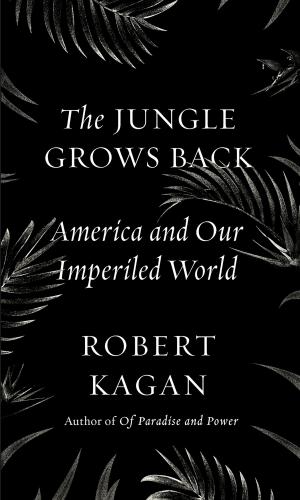
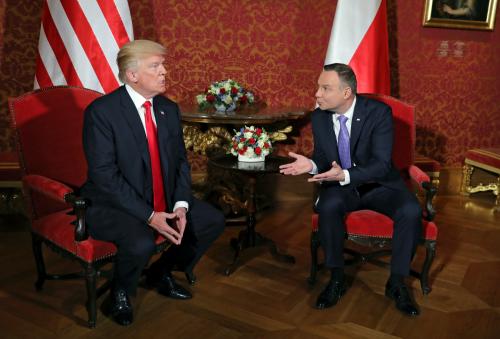
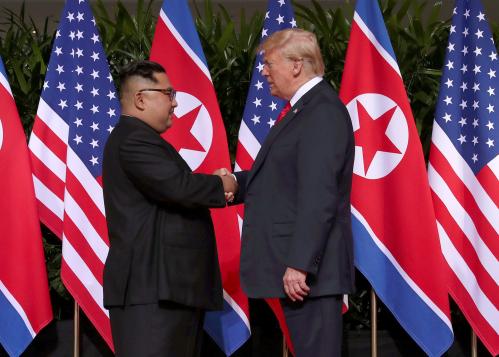
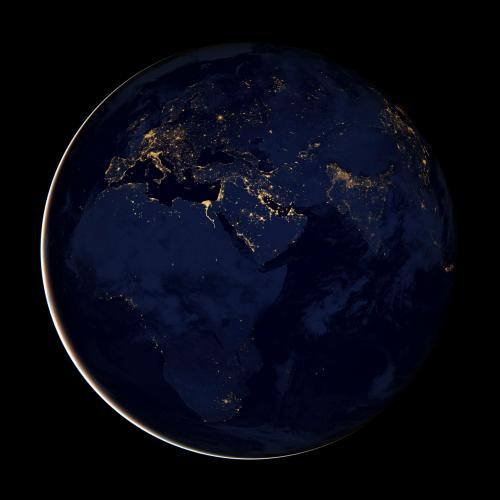
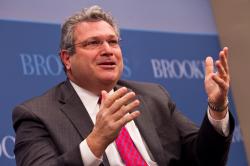



Commentary
Trump’s America does not care
June 17, 2018